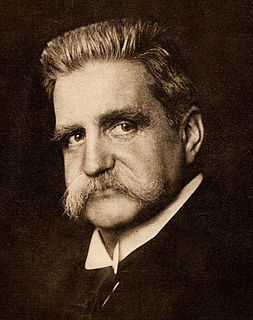A Quote by Hjalmar Branting
Before the war there were many who were more or less ignorant of the international labor movement but who nevertheless turned to it for salvation when the threat of war arose. They hoped that the workers would never permit a war.
Related Quotes
During my childhood and teenage years, everything I knew was at war. My mother and father were at war. My sister and I were at war. I was at war with my atypical nature, desperately trying to fit in and be normal. Even my genes were at war - the cool Swiss-German side versus the hot-headed Corsican.
What is a war criminal? Was not war itself a crime against God and humanity, and, therefore, were not all those who sanctioned, engineered, and conducted wars, war criminals? War criminals are not confined to the Axis Powers alone. Roosevelt and Churchill are no less war criminals than Hitler and Mussolini. England, America and Russia have all of them got their hands dyed more or less red - not merely Germany and Japan.
The threat of mutually assured destruction worked for the United States during the Cold War because it had proved its willingness to drop nuclear bombs on enemy cities at the end of World War II. It might work less well for Israel, because the Israeli Air Force has never deliberately targeted a large civilian population center, and its leaders have said its morality would not permit it do so.
Not only did waging war against Hitler fail to save the Jews, it may be that the war itself brought on the Final Solution of genocide. This is not to remove the responsibility from Hitler and the Nazis, but there is much evidence that Germany's anti-Semitic actions, cruel as they were, would not have turned to mass murder were it not for the psychic distortions of war, acting on already distorted minds. Hitler's early aim was forced emigration, not extermination, but the frenzy of it created an atmosphere in which the policy turned to genocide.
Once the war began, the government could do anything 'necessary' to win it; so it was with the 'final solution of the Jewish problem,' which the Nazis always talked about but never dared undertake, not even the Nazis, until war and its 'necessities' gave them the knowledge that they could get away with it. The people abroad who thought that war against Hitler would help the Jews were wrong. And the people in Germany who, once the war had begun, still thought of complaining, protesting, resisting, were betting on Germany's losing the war. It was a long bet. Not many made it.
When you say that after World War I there was a pandemic that killed more people than the war itself, most will say: "Wait, are you kidding? I know World War I, but there was no World War 1.5, was there?" But people were traveling around after the war, and that meant the force of infection was much higher. And the problem is that the rate of travel back then was dramatically less than what we have nowadays.
When I was arrested opposing the war in Vietnam in 1965, as I said about 20 or 30% of people were opposed to the war. By 1968, more than half of Americans were opposed to the war. If you pull in Europeans, Canadians, people from around the Third World, the war was vastly unpopular. But even half of Americans by 1968 opposed the war.
Cannot swords be turned to plowshares? Can we and all nations not live in peace? In our obsession with antagonisms of the moment, we often forget how much unites all the members of humanity. Perhaps we need some outside, universal threat to make us recognize this common bond. I occasionally think how quickly our differences worldwide would vanish if we were facing an alien threat from outside this world. And yet, I ask you, is not an alien force already among us? What could be more alien to the universal aspirations of our peoples than war and the threat of war?












































